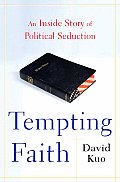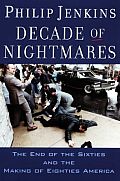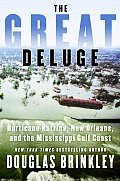
Columbine by Dave Cullen
On April 21, 1999, I walked past an elementary school playground, on my way from my college campus to a convenience store, and I heard screaming. For a moment, my blood went cold. I ran up to the chain link fence and scanned the blacktop for guns or knives or boys in trench coats. But the screaming was just the screaming of kids who'd been cooped up all afternoon and were thrilled to be running around and playing with their friends. Everyone was happy. Everyone was fine.
It was the day after Eric Harris and Dylan Klebold came onto the Columbine High School campus, loaded up with guns and bombs and massacred their classmates. I was a student teacher at a local high school, and suddenly, I was worried about my kids, everybody's kids, in a way I'd never worried before.
Over the next few weeks, I followed the tragedy, and formed certain impressions based on the stories I'd read - troubled, outcast boys; bullied at school; little parental supervision; trench coat mafia; violent video games; popular kids and jocks targeted.
Reading Cullen's book, it's amazing how pervasive the myths about Columbine that circulated in the media following the tragedy were, and how few of them were true. In the years that have passed, more truth has come to light; however, the nation's eye was no longer on Columbine High School, and though the ideas we held about the crime have faded from our memories, they haven't much changed.
Columbine is a meticulously researched, remarkably sensitive book that seeks to create a comprehensive, rational record of the facts. It's not sensational, and there are no photographs, a hallmark of the true crime genre. It's also not an easy thing to read.
The night I began the book, I was grateful for the lack of pictures as I fell asleep. The killers' names swam up into my head, but thankfully, I couldn't conjure their faces, or any other of the images of Columbine, and I didn't want to. The account Cullen pieces together from thousands of pages of official reports and hundreds of interviews and media accounts is disturbing enough.
Cullen responsibly explains many of the stories that evolved around the massacre, and unveils the ways in which Eric Harris and Dylan Klebold fell through the safety nets of school, home, friends, and law enforcement without pointing fingers. He is slightly more damning, if sympathetic, about flaws in the police response to Columbine. After all, students' bodies were left where they fell more than a day after the shootings; Dave Sanders, the only teacher to die in the shootings, might have lived if SWAT teams had acted sooner; the Jefferson County Sheriff's Department hid and destroyed incriminating documents about Eric Harris.
Still, Cullen is hesitant to to assign malicious intent or blame to anyone involved in the response effort, or to families after the fact (the killers' included). Harris and Klebold are a different story, but Cullen also unfolds the dynamics of their personalities and their relationship in a responsible and well-documented fashion. It's almost possible to feel sympathy for Klebold, a suicidally depressed boy, who, had he not come under Harris's influence, might have gone an entirely different way. Harris, on the other hand, is portrayed as a young, but full-blown psychopath, adept at manipulation and bent on mass annihilation.
Columbine skips around in its chronology, never lingering too long on any one part of the shooting, the events that led up to it, or the events that followed, and perhaps that is what made me able to finish it.
When I bought this book, I felt like a sicko, that I'd even read a book about something so awful.
But when I'd finished it, I felt some sense of calm, that a crime I'd had so many false impressions about had been clarified for me, that I now understood both the sickness of the killers, but also, the bravery and struggle of the survivors.
And that's why I would encourage people to read it. Columbine is an example of investigative journalism at its best. It's an effort to make sense of a tragedy, relying upon a foundation of talking to and understanding the people impacted by it. It was a terrible story that needed to be told responsibly and comprehensively out of respect to those who lived through it, and Dave Cullen has done that.














